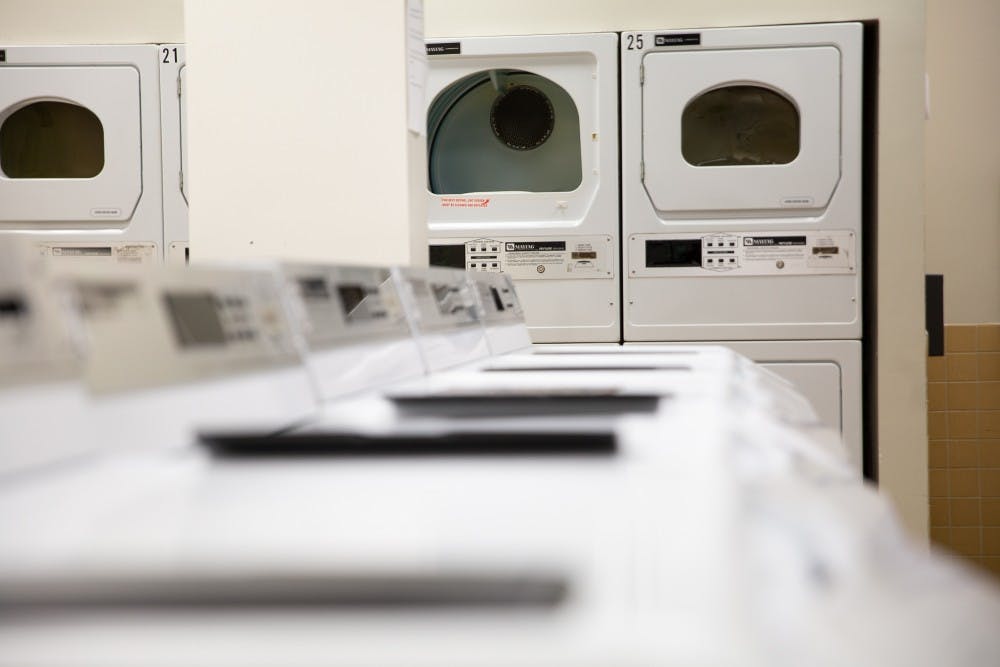The class divided into teams to carry out each phase of the project. Before the semester began, Buzinski and Graduate Research Consultant Tatum Jolink did research which students continued after class began. Afterward, students conducted behavioral observations in the Hinton James laundry room which they used to create interventions.
Bisht and junior Turner Medlicott said they found around 20 percent of people used cold water before their intervention. After the students placed an arrow pointing to the cold water buttons on the machines, that rate more than doubled.
Medlicott explained the link between psychology and environmentalism. He said people want to do a lot with environmental activism, but the techniques they learned in class can help make those changes.
“Part of this class has showed us how really small commitments and small changes can actually be picked up by a lot of people if implemented correctly,” Medlicott said. “And a lot of the preparation that was spent in lecture and actually learning the course material was learning what are those small ways that you actually can make a huge difference, in whatever avenue you’re trying to persuade it.”
Their avenue, using cold water to wash clothes, was set after conversations between Buzinski and Amy Armbruster of UNC’s Three Zeros Environmental Initiative. Since its creation in 2016 by former Chancellor Carol Folt, the initiative has been UNC’s integrated approach to reducing its environmental footprint through three sustainable goals: net zero water use, zero waste to landfills and net zero greenhouse gas emissions.
Armbruster said the Cold Water Wash project fits Buzinski’s class theme of creating social good and helps the initiative’s mission. The project fell into place after the two arranged a partnership with Tide, a subsidiary of Procter & Gamble Company, which Armbruster said has studied the effects of water temperature on laundry and holds values that closely align with the initiative’s.
As a corporate partner, Tide was very hands-off, Bisht said. She said Tide sent them free products, the latest in their line of research about cold water technology and asked them to share the findings.
The class gave away Tide detergent during their application stage, which included attending Residence Hall Association events, promoting their findings in the Pit and creating a social media presence.
The students plan to implement their findings beyond the end of their class. Some students are preparing to co-author a paper with Buzinski about the results of the project, which they will submit to an academic journal.
Armbruster said she has already talked to several campus partners about implementing some of the techniques from the students’ intervention in UNC laundry rooms. She said the preliminary results were amazing, and the project opens the potential for more corporate partners.
Bisht emphasized her appreciation of the class allowing them to apply the theories they learned in real-life scenarios. She sees the project as helping the campus be more environmentally friendly.
“If we were able to increase this kind of action within a short amount of time, kind of dramatically, it kind of shows how the implementation of this intervention would be really significant if it was instituted in campus-wide laundry rooms,” Bisht said.
To get the day's news and headlines in your inbox each morning, sign up for our email newsletters.
@elizltmoore
university@dailytarheel.com




